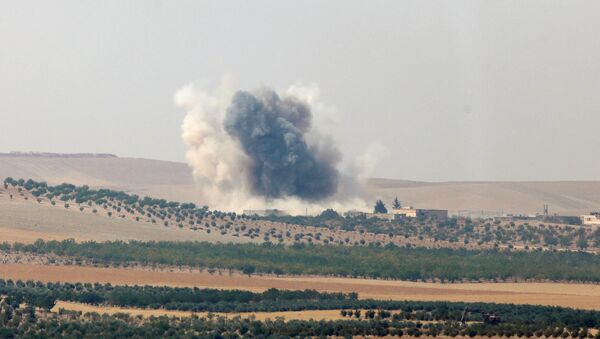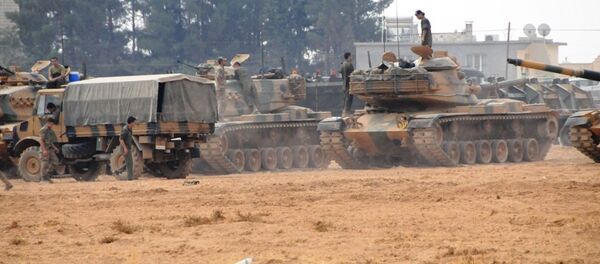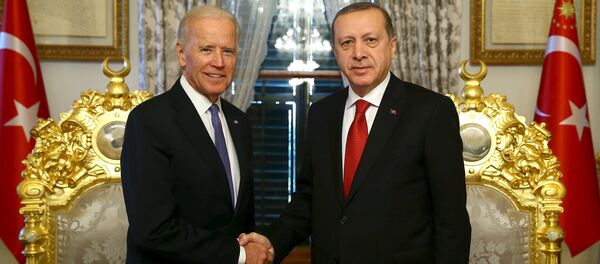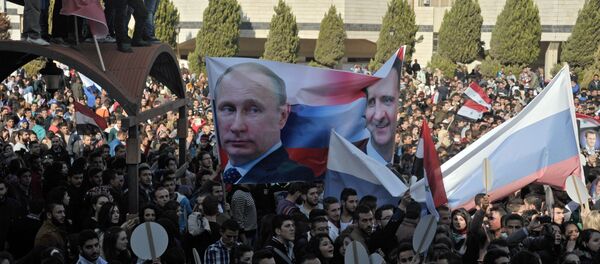The journalist noted that a military operation in Jarablus had already discussed last year. Turkish and American officials hinted that the operation could start right after the G20 summit in Antalya. However, after a Turkish jet shot down a Russian bomber in Syria the offensive was off the agenda.
"So, a Turkish operation in Jarablus was expected. It came late. Ankara realized the Daesh terrorist threat after bombing in Suruc on July 22 and the following attacks," he said.
On August 24, Turkish forces backed by American airplanes launched an operation in the northern Syrian city of Jarablus. The offensive was dubbed "Euphrates Shield" and was backed by a US-led coalition.
The operation was backed by an international coalition led by the United States.
Demirtas underscored that normalization between Ankara and Moscow has significantly facilitated Turkey’s policy towards the Syrian crisis.
"I can say that this operation was possible as a result of the reconciliation between Russia and Turkey. It couldn’t happen without Russia’s authorization. I want to emphasize that the Russian-Turkish normalization was the main precondition for the offensive," the journalist pointed out.
Russia’s influence on the situation is Syria is so significant that Ankara could not have started the Jarablus operation without Moscow’s agreement, a recent article in the French newspaper Le Monde read.
"Like it was never before, now Russia is the master of the situation in Syria. Despite the fact that Moscow voiced concerns over the Japablus operation, this operation was not possible without Russia’s agreement," the article read.
"Moscow seems to have all the cards in the Syrian game," it added.
According to Le Monde, Ankara changed its stance towards Syria after reconciliation with Moscow. Now, this change of heart is giving its first results.
Moscow and Damascus knew about Turkey’s plan to launch an offensive in Jarablus, a source close to the Syrian government told the Russian newspaper Izvestia.
"If Ankara had not notified the Syrian government of the operation Ankara would have faced a sharp response from Moscow and Damascus. But Russia and Syria knew about the operation," the source said.
A Russian diplomatic source did not disprove the assumption.
"Any counterterrorist efforts in the region are very important now. In particular, their efficiency depends on cooperation with Damascus. Such operations should be conducted on the legal basis and in coordination with the Syrian government," the source in the Russian Foreign Ministry told Izvestia.





